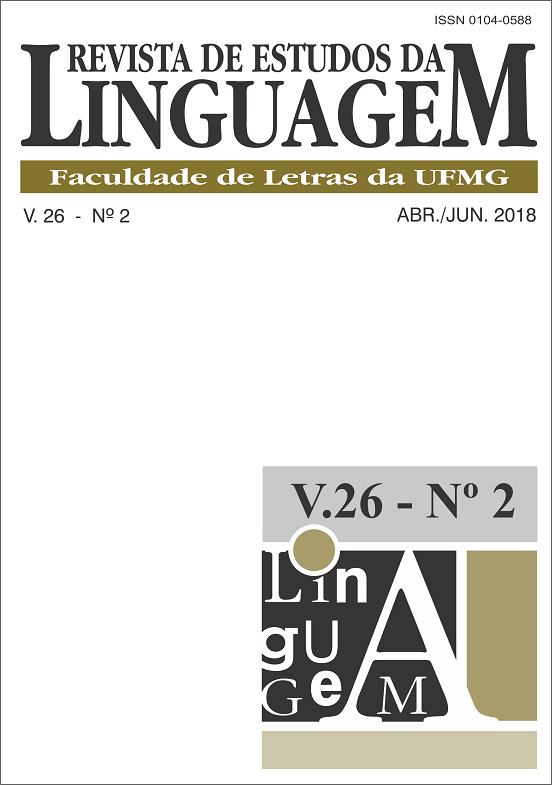Algumas considerações em torno da expressão da posterioridade no passado, no contexto de completivas de verbo
DOI:
https://doi.org/10.17851/2237-2083.26.2.719-767Palavras-chave:
semantics, tense, posteriority in past domains, verbal complement clauses.Resumo
Resumo: A expressão da posterioridade num domínio passado pode ser alcançada, em Português Europeu, por meio do recurso a diferentes tempos gramaticais, destacando-se o Imperfeito Simples do Indicativo, o Condicional e a estrutura ir no Imperfeito + Infinitivo. O presente trabalho procura evidenciar as diferenças interpretativas decorrentes da utilização de cada uma dessas formas verbais. Tendo em vista o objetivo aqui delineado, e após uma breve caracterização semântica de cada uma delas, o artigo explora as suas possibilidades interpretativas no contexto de quatro tipos de completivas de verbo, a saber: verbos declarativos, como dizer ou afirmar; verbos orientados para o futuro, como prometer ou decidir; verbos factivos, como constatar ou descobrir, e verbos que favorecem leituras modais de cariz intensional do gênero de acreditar, sonhar ou imaginar. Concluiremos que as interpretações futurativas derivam de um conjunto de elementos linguísticos em interação dinâmica, que em muito ultrapassam o simples papel dos tempos gramaticais, já que envolvem fatores como as propriedades lexicais do verbo matriz, a presença de certos adverbiais temporais ou o perfil aspectual das situações representadas.
Palavras-chave: semântica; tempos gramaticais; posterioridade no passado; orações completivas de verbo.
Abstract: In languages such as European Portuguese, the expression of a posteriority relation within a past domain can be achieved through the use of different tenses, the most relevant being the Imperfeito do Indicativo (Imperfect), the Condicional (a tense that somehow corresponds to would + Infinitive) and the structure ir (‘go’) in the Imperfect + Infinitive. The paper aims to shed some light on the interpretative differences corresponding to the selection of each of these verbal forms. With this purpose in mind, and after a brief semantic characterisation of the three tenses under discussion, the article explores their interpretative possibilities arising in the context of four kinds of complement clauses, namely those headed by saying verbs like dizer (‘to say’) and afirmar (‘to claim’); by future-oriented verbs such as prometer (‘to promise’) or decidir (‘to decide’); by factive verbs like constatar (‘to find’) or descobrir (‘to find out’) and by verbs that favour an intensional modal reading like acreditar (‘to believe’), sonhar (‘to dream’) or imaginar (‘to imagine’). I conclude that the future-in-the-past readings typically derive from several linguistic factors interacting dynamically. Beside the central role played by tenses, the final interpretation of these constructions depends on a complex computation of grammatical features such as the lexical properties of the verb in the matrix clause, the presence or absence of certain temporal adverbials or the aspectual profile of the situations involved.
Keywords: semantics; tense; posteriority in past domains; verbal complement clauses.





